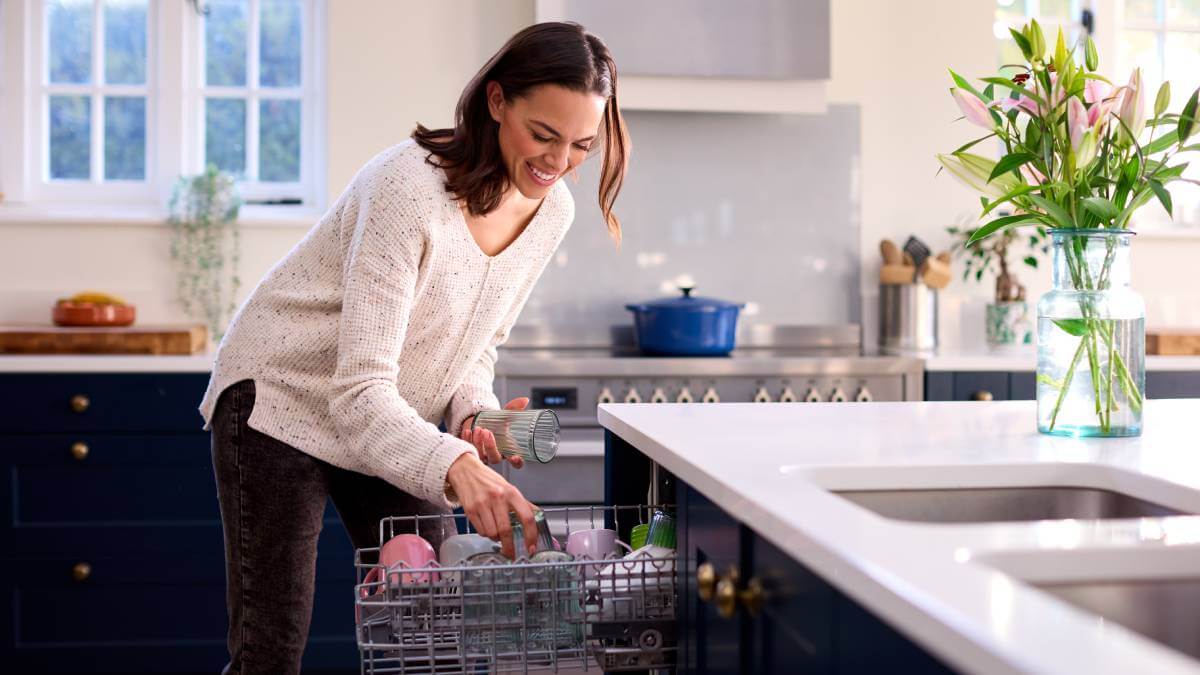We are all keeping one eye on the power meter and another on our wallets, so what are some money-saving tips we can all get behind?
Let’s look at the kitchen, which is often chock-full of appliances that will happily suck up energy all day long.
Just so we don’t go over it for every appliance, always choose a unit with a high star rating and maybe consider a size down from your previous unit. Empty nesters and retirees often don’t need the family-size option and there are considerable savings to be made by buying smaller appliances both from the initial price and running costs.
Chill out
Your fridge is running all day, so it’s probably your biggest energy drain.
There are a few things you can do to cut down on your power use.
A full fridge is a good fridge because the thermal mass of its contents helps to maintain the temperature. But don’t jam it all in, air still needs to circulate to keep everything cool.
Always make sure to cool things down as much as you can before you put them in the fridge.
Don’t be like my children and open the door and gaze and gaze at the contents. A big woosh of cold escapes and your fridge must work harder to get itself back down to the correct temperature.
It’s also a good idea to check if the seals are still fit for purpose.
The seals are dodgy if the doors won’t shut properly or keep popping open and you start getting cold spots in the fridge and frozen food.
Check if the seals to check if they are torn, mouldy, hard or brittle or buckled. If they are, it’s time they were replaced.
Always try to defrost food in the fridge. The cold coming off the food will keep the internal temperature down.
And get rid of that second fridge.
They are usually old, stuck in a back room or shed where they have to cope with extreme weather and the seals are a goner. All things that make them work harder and use more power.
In the wash
Dishwashers are more efficient than hand washing, but there are still tips to keep your costs down.
If you are buying a new unit, choose one with both hot and cold-water connections. These units will use your existing hot water system for hot water instead of heating water itself. This represents a considerable energy saving.
Always fill it up as much as you can. Your dishwasher uses just as much water and power to clean a full load as a small load, might as well fill it up.
Experiment with the cycles. Our dishwasher’s ‘normal’ cycle runs close to two hours, but the ‘quick’ one just over an hour. Guess what? The quicker one cleans just fine. I can’t remember the last time I used the ‘normal’ cycle.
Some like it hot
Ovens are energy vampires, especially as the trend for 1200mm units continues unabated.
Like fridges, try and keep the door shut and make sure the seals are good.
Manage your menu so you cook several foods at once. Remember how our nannas had a roast and a dessert both in the oven? Let’s go back to that.
If the recipe calls for a long cooking time, turn the oven off for the last 5-10 minutes. The residual heat will keep the food cooking.
If you can, use the fan-forced option as it allows you to cook at a lower temperature.
Small fry
Consider using small appliances where you can.
Those big shiny ovens look great in your kitchen, but unless you are regularly cooking for a family of four or more, they are inefficient.
Air fryers are ideal for smaller households. Ignore all the ‘healthy’ hype, they really are just small, benchtop ovens. We are a family of four and I have halved the amount of time I turn on my big shiny oven.
Also try and use your microwave, slow cooker and pressure cooker instead of your oven where you can.
Do you have any energy-saving tips for us? Why not share them in the comments section below?
Also read: Add up the savings, room by room


1 . Do not fill the kettle for just one cup of tea.
2. Fill your clothes washing machine.
3. Use an induction top stove.
4. Never have aircondionining on 18C- 25C is quite acceptable to most people when cooling.
5. Never have heating on 25C – 22C is qhite enough or just put an extra layer on.
Great tips Mervyn, I certainly only put the bare minimum in when boiling a kettle
Dishwashers no longer have a hot water input because they use so little water that by the time hot water gets to the machine from the system it is full. Thus hearing only the pipes only and wasting energy. This has been the standard for several years.